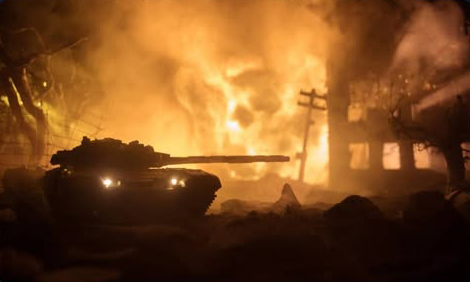Buying rumors and selling news based on the Iraq War?
Whenever war or geopolitical conflicts escalate, financial markets always fluctuate rapidly: gold prices rise sharply, oil prices soar, safe-haven assets strengthen, and news spreads everywhere.
But as investors, how should we handle these war news?
Prices often occur earlier than the news reaction
Many people think that news guides the market, but in fact, prices often respond earlier than news.
Take geopolitical risks as an example. Assets such as gold, oil, and military industry stocks are often pre-hyped by funds before the official news emerges. The reasons include:
Institutions acquire faster intelligence (such as military deployments and satellite images)
The market attaches more importance to "expectations" than "results".
The news report is delayed in time
This precisely reflects a golden saying in the investment field:
"Buy the rumor, sell the news"
That is to say, when the news actually emerges, it might actually be the right time to close one's position and exit the market.
News is information, not instructions
News can cause market fluctuations, but it is not a signal to enter the market.
Whether a piece of war news is worth adopting depends on the following considerations:
Has it been pre-digested by the market (Price-in)?
What is the current technical position of assets?
Did your actions stem from rational deployment? Or an emotional reaction?
Relying solely on news manipulation can easily lead to a pullback after a high rally or fall into the trap of a false breakout.
How to make good use of news trading?
News is not unusable; it just requires strategies. The following methods can be used for reference:
Observe the rhythm rather than the plot: Instead of following the news, pay attention to whether the market has responded in advance.
In combination with technical analysis: If the gold price encounters news at the resistance level, caution should be exercised. If you approach the support zone and see a significant increase in trading volume, it might be a good time.
Set risk control exit points: Behind the news, risk management is still necessary. Position control and stop-loss setting are indispensable.
Distinguish events from trends: Short-term conflicts do not necessarily change the long-term direction. Do not generalize from a part.
In the information age, whoever can make calm judgments will have the opportunity to move one step ahead of the news.
Previous Article Next Article


 Whatsapp
Whatsapp Telegram
Telegram
